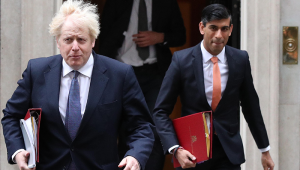The panel of 10 experts, which included former NHS chief executive Sir David Nicholson, concluded that the NHS in England needs a real-terms funding increase of £4bn in 2018-19 and a further increase of £2.5bn in each of the following two years.
To pay for the increase, income tax should be increased by a penny on the pound and long-term health and care funding should come from a single ring-fenced tax to replace national insurance, the report said.
LibDem leader Sir Vince Cable said: “The health and care budget should be financed by an earmarked tax, which could replace national insurance. Many of those previously strongly opposed now accept that, in the case of the NHS, there is a strong argument for a form of ring-fenced tax.”
The report also recommended creating an Office for Budget Responsibility for Health, introduce incentives to encourage people to save more towards adult social care, give additional revenue for local authorities to invest in public health, and reinstate a cap on the costs of adult social care.
An increase in council tax is not “a progressive, or sustainable” way to pay for health and social care services in the long term, the report argued.
But funding from a newly introduced earmarked tax would be combined with the funding raised through council tax to pay for services.
Panel member Dr Peter Carter, former chief executive of the Royal College of Nursing, said: “Our NHS has tens of thousands of staff vacancies and is billions of pounds short of the funding it needs. It is clear that we cannot carry on like this.
“There is a desperate need for an injection of extra funding, but we must also look at longer term solutions to put services on a more sustainable footing.
“Whether this is enabling services to modernise and innovate, and encouraging prevention and more out of hospital care, this report looks at ways we can tackle these deep seated challenges right across the system.”
The report was prepared by:
Amna Ahmad, health campaigner and NHS Policy expert
Professor Dinesh Bhugra, emeritus professor, mental health & cultural diversity. President World Psychiatric Association
Professor Nick Bosanquet, professor health policy, Imperial College
Sir Stephen Bubb, chief executive of Charity Futures and former chief executive, Association of Chief Executives of Voluntary Organisations
Dr Peter Carter, former chief executive of the Royal College of Nursing
Professor Clare Gerada, former chair Royal College of General Practitioners
Richard Kemp, leader, Liverpool Liberal Democrats
Professor Paul McCrone, health economist
Katherine Murphy, former chief executive of the Patients Association
Sir David Nicholson, former chief executive of NHS England











